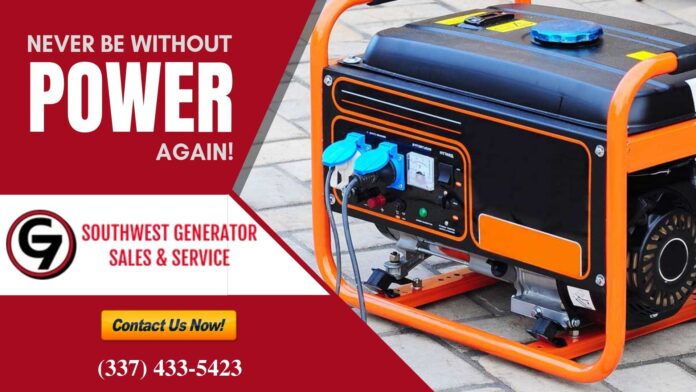Private power generators produce 10x national grid output
By Jeph Ajobaju, Chief Copy Editor
Private power generators cost Nigerians N12 trillion every year to produce 40,000 megawatts (mw) for homes and businesses, 10 times the 4,000 mw supplied by the national grid.
Former National Electricity Regulatory Company (NERC) Commissioner, Eyo Ekpo, who made the disclosure, cited the difference of N40 per kilowatt per hour (kph) between the cost of self-generated power (N130 kph) and grid power (N90 kph) and lamented that Nigerians are “burning money”.
He spoke at a European Business Chamber (EuroCham Nigeria) conference in Lagos, organised to galvanise policy reform to unlock investment in the power sector and deliver stable electricity nationwide.
Ekpo criticised Abuja’s “patronising” decision to hold down electricity tariffs, saying, “Nigerians want reliable supply of electricity through the national grid, Nigerians do not want low tariffs for grid-supplied power.”
He said there is no shortage of electricity since homes and businesses provide themselves 10 times more through petrol and diesel generators than the supply from the national grid, per reporting by The Nation.
Ekpo argued that the real problem is that Nigeria is stuck with a power delivery model that is “extremely costly and inefficient”.
In his view, keeping power tariffs low condemns consumers to perpetual dependence on “extremely expensive” backup generators which starve the power sector of investment.
Nigerians will not have reliable supply of cheaper electricity from the national grid until investors see a tariff that can cover the cost of investment required to provide it, he stressed.
Ekpo said power sector problems are rooted in governance challenges rather than technical or financing difficulties.
“Policy making and regulation have not been focused or comprehensive”, he said, hence power cannot attract appropriate levels of investment from the private sector, coupled with the fact private firms also have obstacles created by the government.
__________________________________________________________________
Related articles:
Aliyu shifts blame for unstable power supply on Jonathan, et al
National grid angling for new 2,672 mw to raise power supply
Neighbouring countries owe Nigeria N770m in power bill
__________________________________________________________________
Power privatisation aim not yet achieved
Ekpo, who was NERC Market Competition and Rates Commissioner, said the privitisation of the power sector in 2013 has not achieved its aim because Nigerians still overwhelmingly depend on backup generators.
“As at the time of privatisation, average capacity delivered to the country via the national grid was about 3,400 mw.
“There has been a 20 per cent growth to about 4,200 mw. But our population in the same period has grown by 24 per cent, from about 175 million to 212 million.
“The number electricity customers has more than doubled. Backup power supply has doubled, growing exponentially to about 40,000 mw.”
He blamed the failure to increase national grid supply partly on the fact privitisation in 2013 did not attract quality power sector investors.
“We had a group of people who had to depend on borrowing and expected that inflow from the market would be able to help them pay back but that hasn’t worked out.”
Ekpo said Abuja failed to hand over the $3.5 billion it got from selling 60 per cent of shares in power companies to private investors to expand sector capacity and instead used it to pay severance package to workers.
“Secondly, the government still held on to 40 per cent of equity in the DisCos [Distribution Companies] but could then not put up the cash to support the capital and expansion requirements of those DisCos.”
Ekpo urged the government to deepen power sector reform by privatising the transmission network.
Current electricity generation is 4,000 mw but generating companies (GenCos) have an installed capacity of 13,000 mw.
The transmission system has capacity to move between 5,000 mw and 7,000 mw (there are various estimates of the “wheeling capacity”) from GenCos to DisCos.
Low hanging fruits
Siemens Nigeria Managing Director Seun Suleiman said one of the “low hanging fruits” in the sector is to raise transmission capacity to deliver more of about 7,000 mw in “fallow capacity” in GenCos to DisCos.
Power Minister Abubakar Aliyu, represented by his Transmission Director Emmanuel Nosike, said the priority is to increase transmission capacity.
He reiterated that DisCos can take additional power from the transmission system since they cannot invest in equipment as “their balance sheet is red”.
Without improvement in transmission capacity, Aliyu stressed, there will be no new investment in generation capacity.
He said Nigeria requires 42,000 mw but has 13,000 mw installed capacity out of which the national grid can only wheel and deliver about 4,000 mw.
Consensus of experts
All experts at the conference lamented the huge constraint that reliance on expensive backup generators imposes on investment, employment creation, and economic growth in Nigeria
EuroCham Nigeria, formerly known as European Business Organisation (EBO) Nigeria, was founded by 18 European firms in October 2018 at the seventh EU-Nigeria Business.
Membership has grown to 35 companies, among them Nigerian firms that conduct business with European partners.




